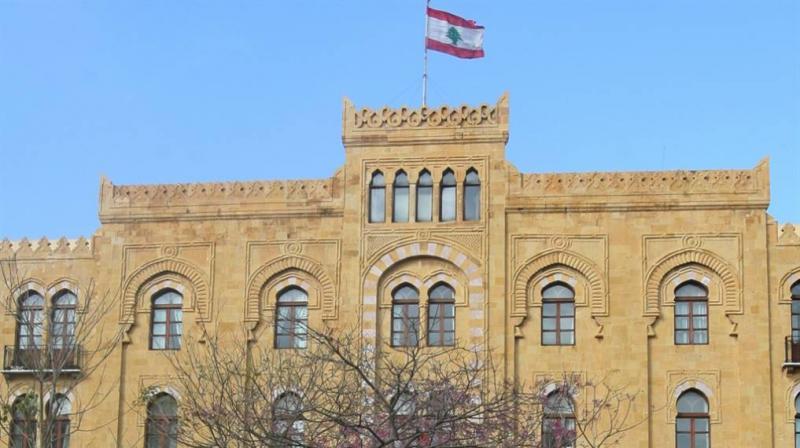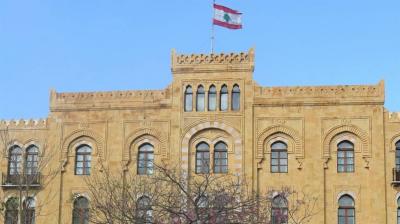The decree for the payment of financial dues to the independent municipal fund in Lebanon is on its way to approval, after being signed by the Minister of Finance in the caretaker government, Youssef Khalil. It will complete its legal process, requiring the signatures of the Minister of Interior and Municipalities, Judge Bassam Mawlawi, the caretaker Prime Minister, Najib Mikati, and the President of the Republic, Michel Aoun, to become effective.
Despite the state's acknowledgment of municipalities' rights, reliance on the benefits of this fund has significantly diminished, especially since the allocated funds in Lebanese pounds have lost value due to the collapse of the national currency (the official dollar rate is 1500 pounds and around 30,000 in the black market) and the rising cost of services. However, a source in the Ministry of Finance noted that "the decree paves the way for the disbursement of municipalities' dues as a legitimate right and obligation of the state, not as a favor."
He acknowledged to "Asharq Al-Awsat" the "important role played by municipalities in alleviating people's suffering," especially since most municipalities are performing roles beyond their powers, which are the responsibility of the authority and service ministries, such as energy, public works, and health. He mentioned, "We cannot forget the pioneering role of municipalities during the COVID-19 pandemic, taking the initiative to establish clinics, medical centers, and resuscitation departments to mitigate the spread of the disease among patients, without overlooking the security role played by the municipal police in combating thefts and preventing encroachments on public and private properties, among others." The source stressed "the importance of restoring this role, which has diminished to the utmost limits with the explosion of the social crisis in late 2019, and for municipal funds and the process of collecting fees to return as part of the revenues that nourish the state’s finances."
While the news of the disbursement of municipal dues used to be "a good omen" in past years, it is no longer the case currently; the allocated funds "make no difference." Abdel Ilah Zakarya, head of the Qaitaa Municipalities Union in Akkar, pointed out that the funds of the municipal fund "have lost their value, especially since municipalities' dues are paid in installments." Zakarya provided an example of the lack of utility of municipal funds in this circumstance, saying to "Asharq Al-Awsat": "In 2019 and before, the share of the municipality of Fneidq was two billion Lebanese pounds, equivalent to about 1.35 million dollars. Today, this amount is worth only 66,000 US dollars, which is insufficient for waste collection and disposal," noting that "developmental work has completely halted, and all municipalities in Akkar are completely paralyzed, which applies to most municipalities in Lebanon except for major cities."
Many municipalities refuse to surrender to collapse or abandon their responsibilities, instead seeking to devise temporary solutions. Abdel Ilah Zakarya stated that the Qaitaa Municipalities Union he heads "has consistently sought sponsorship from commercial companies and funded individuals for some projects implemented by the council in his area." He added, "We have started begging for assistance from traders, funders, and expatriates to cover some expenses or carry out some essential services." He emphasized that "the biggest challenge for the municipalities in the Jurd region lies in confronting the wave of fires that hit forests in the summer with rising temperatures or the opening of mountain roads that become blocked in winter due to snow accumulation."
Zakarya expressed his regret that "the authority does not consider that the debts accumulated on municipalities are in US dollars; all equipment, spare parts, and services are priced in US dollars." Municipalities in Lebanon operate as local authorities, responsible for providing essential services to citizens, including infrastructure, road construction and maintenance, waste collection, ensuring public interest, and establishing municipal unions that give them greater capacity to provide services. They also enjoy administrative and moral independence.
Member of the Defense, Interior, and Municipalities Committee, MP Qassem Hashem, considered that the signing of the decree for disbursing municipal dues "came too late, especially as the economic situation is difficult, and the suffering of municipalities has reached the point of closing many of them, as they are unable to provide even the minimum service requirements for their local residents." In a statement to "Asharq Al-Awsat," he pointed out that the awaited decree pertains to municipalities' share from 2020, which has become worthless due to the collapse of the national currency, the rising costs of services, and the inability to secure employee salaries, urging a "quick reconsideration of the value of the independent municipal fund and how to distribute it fairly so that municipalities can provide their services, rather than rushing to deliver it, which is a right for the municipalities."
It is true that the crisis of municipalities in Lebanon cannot be separated from the overall collapse that the country is witnessing; however, the government's and parliament's failure to pass budgets annually deepens this crisis. MP Hashem emphasized the need for municipalities to receive their rights from the revenues of "mobile phone" fees and from Ogero (landline), set at 10% of the revenue of the companies, considering that the objective solution for municipal dues cannot be achieved without revisiting them through the general budget. He pointed out that "the 2022 budget must lay the foundations for addressing the upcoming phase and establish a new structure for public finances, especially since the budget will address the directions of the International Monetary Fund, including reforms."




